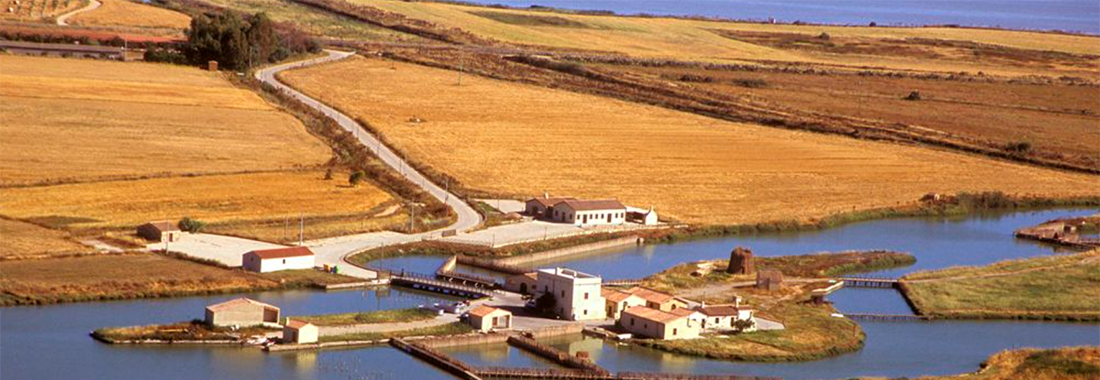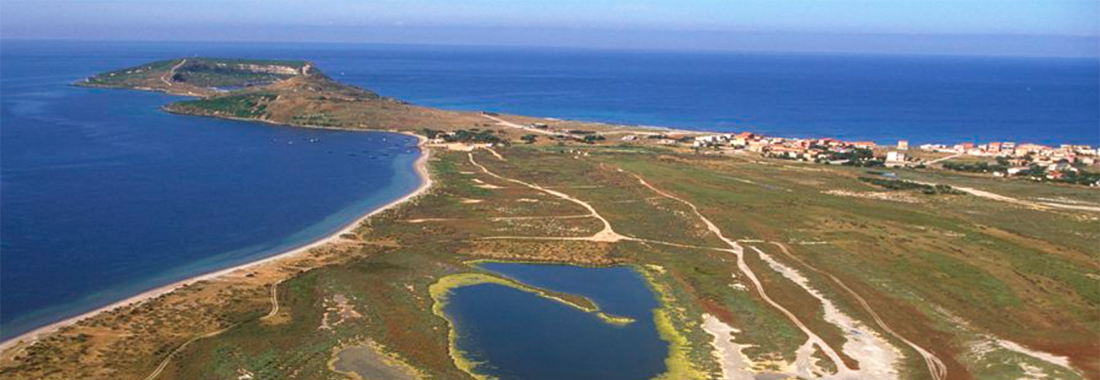Overcoming traditional marine-coastal restoration practices and developing an integrated low-carbon model, capable of systemically looking at the link that coasts maintain with rivers. The MEDSEA Foundation is part of REST-COAST, the Horizon 2020 project of the European Union which brings together the energies and skills of 38 partners, coordinated by the Polytechnic University of Catalonia.
Nine sites chosen by the project in the seas that surround Europe, the Mediterranean, the Atlantic, the Black and the Baltic Sea. Here the newfound connectivity between river systems and coastal areas consisting of dunes, wetlands and Posidonia meadows will improve the quality of ecosystem services that these environments can guarantee in terms of biodiversity, richness of fish stocks and the ability to mitigate extreme weather events caused by climate change.
No longer a series of isolated interventions that solve single critical issues, but an organic vision of the territories threatened by rising temperatures and sea levels, an integrated approach to conservation and management that involves stakeholders and local communities, together committed in finding, through the language and practices of scientific research, a long-term solution. "REST-COAST will develop a systemic approach to the adaptation process of coastal areas that is in line with the objectives set by the Green Deal of the European Union", said Professor Augustin Sanchez-Arcilla, coordinator of the project, during the kick-off meeting held in November in Barcelona.
"REST-COAST is based on nature-based-solutions, solutions based on the sustainable use of nature to address the social, economic and environmental challenges brought about by the climate crisis", explains Francesca Frau, project manager for the MEDSEA Foundation. “It is in line with the directives that emerged from COP 26, and in general with the new way of interpreting the fight against climate change. Our role within the project will be to provide knowledge and practices that we have accumulated over the years, operating in a context of insularity with the Maristanis, TuneUP and MedSeaGrass projects, implemented in Sardinia".
These projects show how avant-garde and far-reaching an integrated approach to restoration and sustainable development of marine-coastal environments can be. Maristanis has recently reached a very important goal with the "Coastal Contract", a document that brings together eleven municipalities in the Gulf of Oristano, the Sardinia Region, the Reclamation Consortium and the Province in a decision-making body that has set itself the task of imagining and building the eco-sustainable future of the gulf, as well as the rare and fragile wetlands that surround it. TuneUp, which has the municipality of Cabras and the Sinis Peninsula-Mal di Ventre Island Marine Protected Area as scenarios, has engaged the youth community in a participatory process that aims to trigger a direct, organic involvement of the population in the management of environmental assets and of the related ecosystem services. Finally, with MedSeaGrass, MEDSEA is working to restore the Posidonia oceanica meadows in the Sinis Marine Protected Area itself and, parallel, establishing a new model of mooring that is compatible with the marine ecosystem.
Latest news

REST COAST, at the annual meeting in Groningen, demonstrates the effectiveness of natural restoration of aquatic systems
The standstill of the Nature Restoration Law, the European law on nature restoration, stalled in its final approval phase in the Council due to the hesitations of some Member States, has…

TransformAr makes a stop in Finland for the sixth Consortium Meeting
In mid-April, the sixth Consortium meeting of the H2020 TransformAr Project was held in Lappeenranta, recognized as the Climate Capital of Finland. This city truly exemplifies sustainability, with 100% of waste recycled and all…

Launch of the PLASTRON Project in Genoa: A Cross-Border Initiative for the marin Plastic & Paper Recycling
The PLASTRON project is about to start. With the goal of improving the sustainability of local communities by providing knowledge and tools for collecting and transforming plastic from the coast…

Wetland4Change to Address Climate Change with Wetlands, Kickoff in Sofia
Last week, hosted by the University of Forestry in Sofia, the kickoff of "Wetland4Change" took place, marking the start of an ambitious Interreg Euro-MED project within the Natural Heritage Mission aimed at…

The Capo Carbonara Marine Protected Area towards a New Zoning with Blue4All
A new co-management model to reorganise marine protected areas, benefiting from all the tools and knowledge provided by the Blue4All project will be soon implemented in Sardinia. Later last month, preliminary meetings…

TransformAr, Adaptation Pathways to Climate Change for Fishing Validated, All Set for Sensor Installation
TransformAr enters its most operational phase at the pilot site in Oristano where, in March, the MEDSEA team met with the Municipality of Terralba and the fishermen of the San Giovanni Lagoon from the Marceddì Consortium to…

Revitalizing the Mediterranean: ARTEMIS Project Unites Environment and Innovation
March marked the launch of "Artemis", a project of the Interreg Euro-MED Programme that seeks to combine the ecological benefits of seagrass with innovative financial strategies, such as Payment for Ecosystem…

Petit Noirs: From Senegal to Arborea to Combat Illegal Immigration with Mussel Farming
Sustainable mussel farming in Arborea becomes an international example with a project linking Dakar, Senegal, with Sardinia, aiming to combat illegal immigration and generate economic opportunities.

The Charm of Wetlands in Sardinia: Over a Thousand Visitors in the World Wetlands Day Event Calendar in Sardinia"
With over 30 events, from January 27 to March 10, 2024, the MEDSEA World Wetlands Day in Sardinia comes to a close. The initiative, which falls in the month when wetlands are…

First Meeting of the DesirMED Project in Venice: A Step Forward in Climate Adaptation in the Mediterranean
Last month, the historic city of Venice hosted the first meeting of DesirMED, a project funded by the HORIZON Europe program aimed at addressing one of the most pressing challenges of…

Sails Towards the Future: The UniCa Sailing Team and the Challenge of Eco-Sustainable Boats in Sardinia
In Sardinia, circular and low-impact solutions for water sports and sailing are being studied. The University of Cagliari, together with the UniCa Sailing Team, is working on the construction of an…

The first General Assembly kicked off in Lecce: for a more resilient MPAs network
The first General Assembly of the "Blue 4 All" project took place in Lecce from January 23 to 26, 2024. The event, hosted by the CMCC Climate - Euro-Mediterranean Center on Climate…

It's Time to Celebrate Wetlands: join World Wetlands Day Sardegna 2024
In Sardinia, February is the month of wetlands! We celebrate World Wetlands Day on the occasion of February 2nd, which marks the 53rd anniversary of the establishment of the RAMSAR Convention for…

TransformAR Reaches Halfway: The Progress in the San Giovanni Lagoon
TransformAR, at the pilot site of Marceddì-San Giovanni (Terralba) in Sardinia, one of the six demonstration sites of the project, is gaining momentum. The project, which develops transformative adaptation solutions to climate change…

MEDSEA reforestation phase in Sennariolo for the "Hope for Sennariolo" campaign has officially begun
As announced last summer, the MEDSEA reforestation phase in Sennariolo, Sardinia, for the "Hope for Sennariolo" campaign has officially begun. The small village of Montiferru in Sardinia, in July 2021, following a major fire…

We're gearing up for the month of ponds in Sardinia with #WWDSardegna: registrations open until January 21th!
At MEDSEA, we're gearing up as we do every year for the month dedicated to ponds and lagoons: February. World Wetlands Day, or the Global Day of Wetlands, is celebrated annually…
- 1
- 2
- 3
- 4


